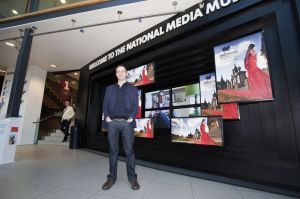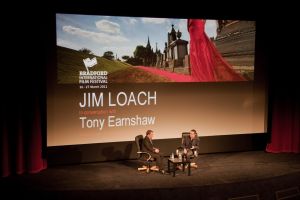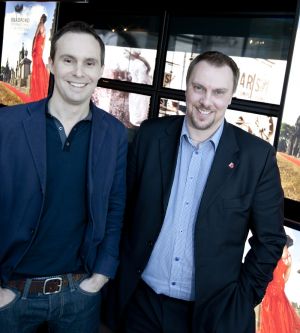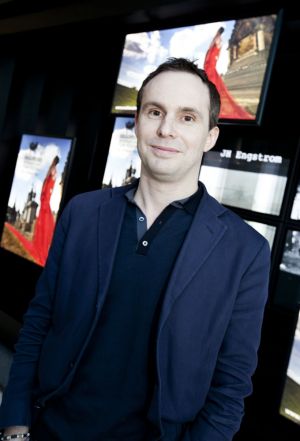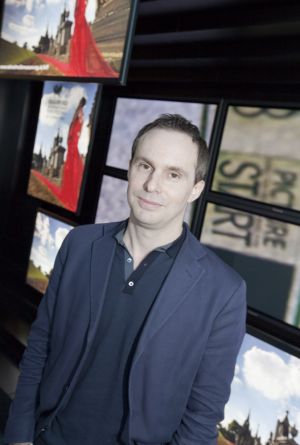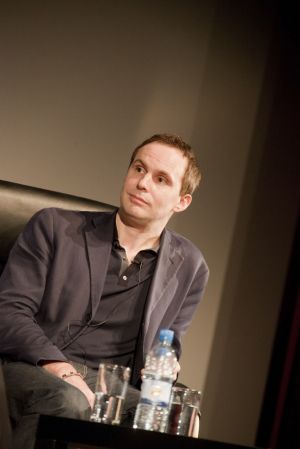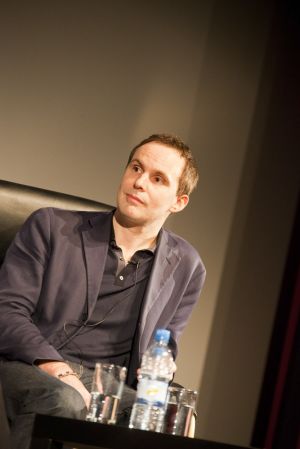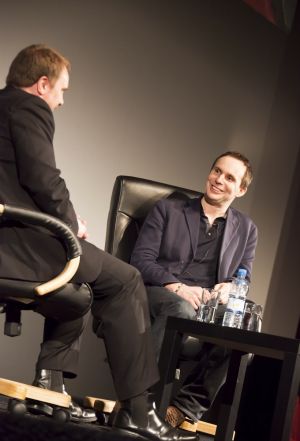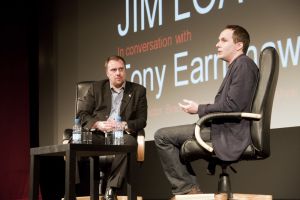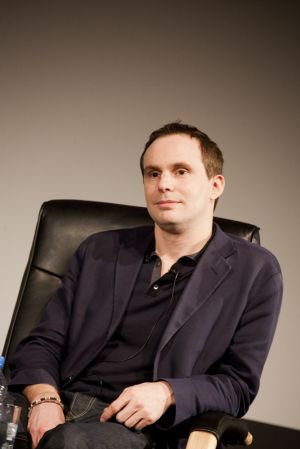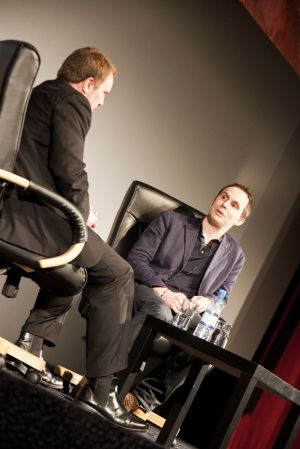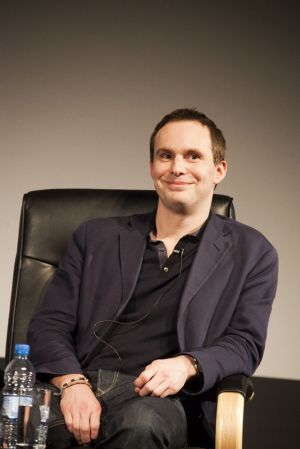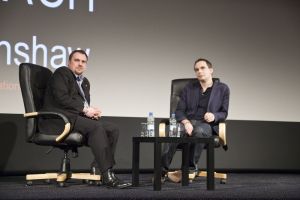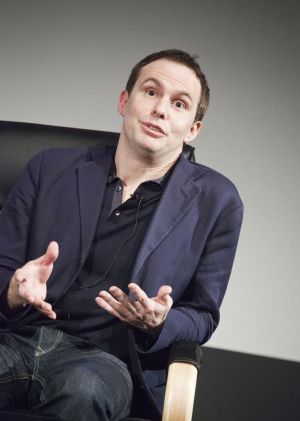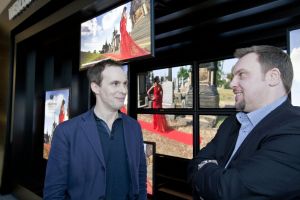When Jim Loach was a kid he thought Bafta award statuettes were doorstops – that’s what they were used for in his house. “Sometimes the heads would fall off because they’d been picked up so many times,” he says, grinning. He tells the story to explain how far removed his “normal” childhood, growing up in Bath, was from his dad’s job. Dad is Ken Loach, and he is the second youngest of his five children. “Sorry, I always feel it’s a slightly boring answer, but that’s the way it was,” explaining the lack of glamour at home. No shelf dedicated to the back catalogue then? “God, no, not at all.” At one point Jim and his sister swore a “blood oath” to have nothing to do with film; he wanted be a journalist. “I was absolutely, avowedly sure that I would never make a film in my life. I felt like I would be on a hiding to nothing ”
Needless to say, Loach changed his mind, and it has taken nearly a decade to get his first feature off the ground. Oranges and Sunshine is a drama about a Nottingham social worker, Margaret Humphreys, who in the late 80s found evidence of a sorry episode in British history: the secret deportation of children in care. Up to 10,000 were shipped to Australia between 1947 and 1967. Promised new lives with families, most ended up in institutions, often treated as slave labour. The youngest were just three.
In 2002, a friend gave a copy of Humphrey’s book, Empty Cradles, to Loach. Unsurprisingly, the scripting process took a long time – it’s a minefield of a subject. Raising money wasn’t easy either. Loach also admits to “walking around it”, meaning that he went through draft after draft. And then there is the burden of that surname (multiply average fear of failure by the expectation generated by a Palme d’Or in the family). “Psychologically, I found it much harder before we started shooting. It felt like walking into a shitstorm. I felt it had to be perfect.” It was his mum and dad who gave him a now-or-never talk, telling him to get on with it.
Loach started his career as a researcher at the BBC, before directing for TV (“a good apprenticeship”). Coronation Street, Footballers’ Wives, Shameless, that sort of thing. He was working on the ITV drama Bad Girls when he first visited Humphreys in the Nottingham office where, for more than 20 years, she has run a charity reuniting the migrant children and their families. Loach would visit Humphreys at weekends and after shoots, and was “gobsmacked” by the stories she told him. Humphreys, understandably, was cautious: her big worry was that he would do a sentimental, Hollywood number on her. “It was quite easy to dispel those doubts,” he says, dryly.
Advertisement
In that hypothetical Hollywood movie, Margaret Humphreys would be a crusading force of nature. Not in Loach’s film, which has Emily Watson giving one of her unshowy, grippingly real performances. “I ran home the day she agreed to be in the film, like an overexcited kid,” he says. Watson’s Margaret is rather shy and sometimes prickly. Listening to story after story of stolen childhoods and horrendous abuse takes it toll – and she finds it hard to function in her own very loving family. She can’t spread any thinner, or split herself in two.
“I found that dilemma very compelling,” says Loach, “and very relevant to 2011. Working mothers, working parents – it’s a circle all of us try to square.” He says Humphreys was among the first people to see the finished film, at private screening with her family. Loach, Munro and the film’s producer paced nervously outside. “I walked in when it finished and asked her: ‘Are we still talking?’ She said: ‘Of course we’re still talking.’ The world started turning again for me.”
Loach explains the sociological background to the story. The exporting of children began as far back as the 17th century; it became a flood after the second world war, as many parents found themselves unable to look after their small children, and put them in care; others were unmarried mothers. It made economic sense for the UK government to pack “unwanted” kids to Australia. Says Loach: “Margaret found a document where someone had done the maths. A ticket from the UK to Sydney, one-way, was less expensive than raising the child.” Meanwhile, Australia was pursuing a racially motivated immigration policy and welcomed “good white stock”.
Coincidentally, both governments made official apologies during filming – Gordon Brown’s was in February 2010, as Loach and his crew arrived in Australia. But Loach says he didn’t set out to make a “campaigning” film, and Oranges and Sunshine isn’t – it’s more emotional than that.
In his film, Loach gives us two grown-up child migrants: lost soul Jack (Hugo Weaving) and Len (David Wenham). Len – a real steaks-on-the-barbie guy, not a victim-type at all – was typical of the survivors he met, says Loach. Len is sent to Bindoon Boys Town – a Catholic boys’ establishment run by the Christian Brothers – which has become synonymous in Australia with abuse. Loach visited Bindoon with two former inmates. It is a grotesquely beautiful pile set in epic landscape in the middle of nowhere, north of Perth. “As a building you think: how unsuitable for children. It’s not built for kids. It’s built for adults and their egos.” It was, however, built by children – little boys doing men’s work, barefoot, lugging huge slabs of sandstone as big as their chests. Loach and his companions got in over the fence. “One of them was banging the walls saying, ‘I built this wall. My blood is in these stones.’ Literally.”
It is tempting to compare Loach and his dad. Both have a clear idea of what they’re doing, but express it very gently. Both are quick with a self-deprecating giggle, too.
Loach, you suspect, is more easygoing discussing his dad than he once might have been. He admits to calling his dad the night before he started shooting. “I don’t know if I should say this, but anyway. I had a real kind of moment, where I thought: ‘Oh my God, how am I actually going to do this after so long? To actually shoot it?’ So obviously I called my dad – as we all do in these situations.” Loach Sr gave him some sound dad advice: shoot the first scene, shoot the second scene, then have a go at the third.
Has anyone accused him of nepotism? Hundreds of people want to make a film; he gets to because of his surname. “It’s never been said like that,” Loach says. “But people have said: ‘You must have got a leg up.’ It’s the same thing.” He says he had to struggle as much as the next director to get funding for his not-insignificant budget. “You just don’t raise that money on the basis of your surname.” Not that he is bothered by what people say: “You can spend your life worrying about perceptions and opinions, but it’s completely beyond your control.”
http://www.theguardian.com/film/2011/mar/31/jim-loach-oranges-and-sunshine
